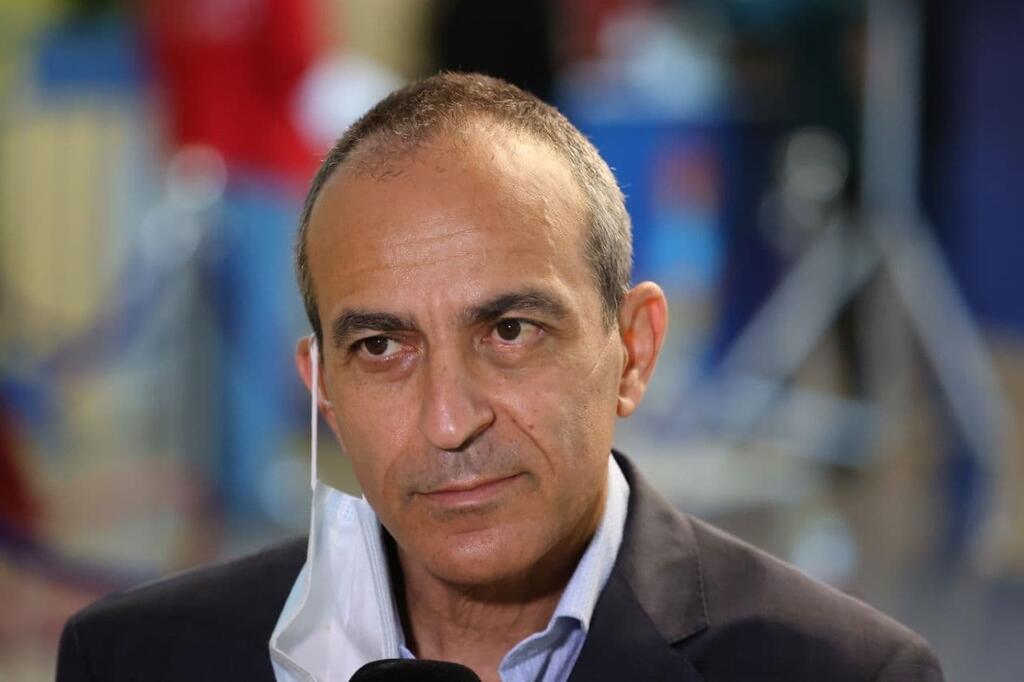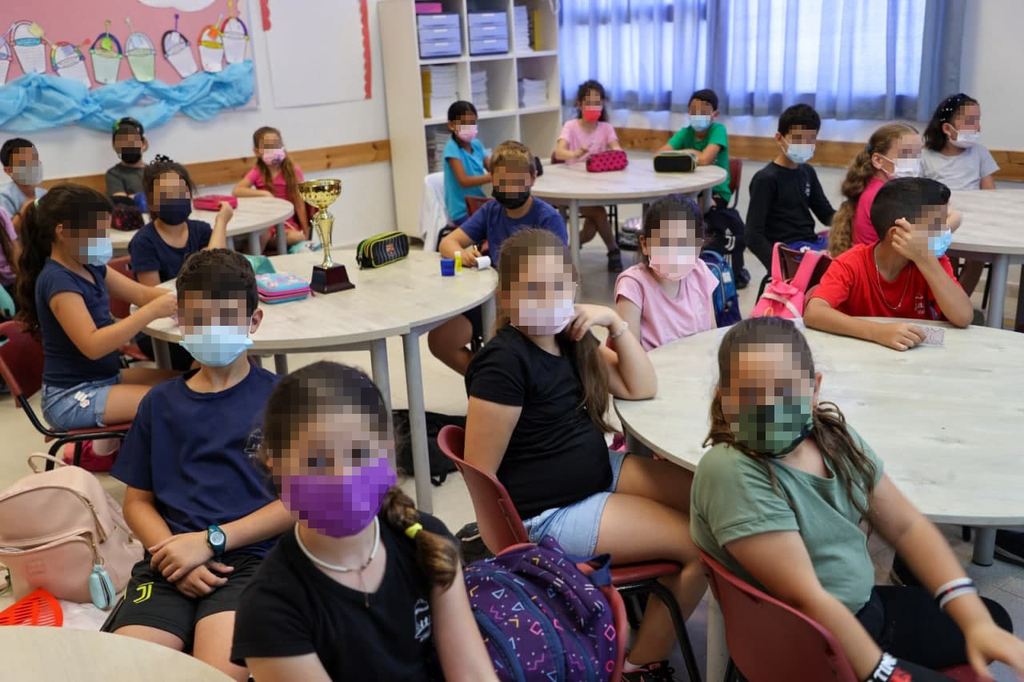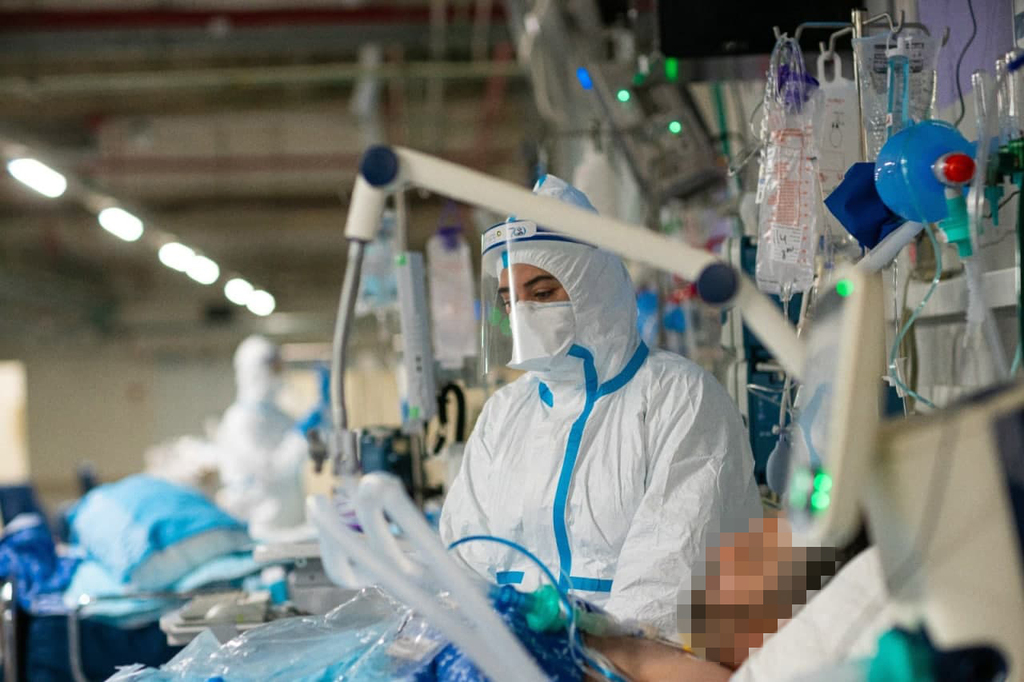The State Comptroller published Tuesday a special report highlighting the government's inadequacy in its treatment of the COVID pandemic in Israel.
State Comptroller Matanyahu Engelman’s report focuses on the conduct of the 34th and 35th governments - both headed by Benjamin Netanyahu - during the country’s first and second COVID wave last in 2020.
4 View gallery


Child studying at home, Gantz and Netanyahu and Ben Gurion Airport
(Photo: Amit Shaabi, GPO, Eti Nuriel)
According to the comptroller, the lack of a state budget for 2020 caused grave damage to the government's budgetary conduct in a time of crisisi and impaired the state's decision-making during the pandemic, which also led to an inadequate allocation of funds to various initiatives and programs.
The lack of the state budget also appears to be the reason Netanyahu's governments failed to find an adequate solution to the issue of Ben Gurion Airport - Israel's main port of entry - through which health officials believe numerous variants of the pathogen made their way into Israel.
"This review is more relevant now than ever and has raised significant shortcomings. We are in the midst of a fourth wave and there is significance to correcting these shortcomings immediately,” wrote the comptroller in his report.
In the report’s first chapter, which deals with the management of the COVID crisis at the national level, the comptroller said the government failed to form a coronavirus cabinet dedicated to dealing with the pandemic at its onset.
It was also stated that important decisions, such as the utilization of the Defense Ministry during the crisis and the purchase of additional ventilators, were made in various forums headed by Netanyahu and were not discussed in the Knesset plenum as is required by law.
The comptroller also found glaring flaws with the conduct of the 35th government, which was also headed by Netanyahu and in which Benny Gantz was alternate premier, and its ministerial coronavirus cabinet.
The report said that during the second COVID wave, between July 3 and August 2, the coronavirus cabinet failed to convene even once - while the government itself failed to discuss the measures recommended by the National Health Council, meant to reduce the country's swelling infection rate.
According to the comptroller, this impaired the state’s ability to reduce the infection rate and directly contributed to the decision to impose a second general lockdown on September 18, 2020.
The comptroller also criticized the Health Ministry, which he claims had difficulty managing the procurement of additional medical goods, and its control center whose goals was to reduce the risks posed by the pandemic.
In addition, the country’s first coronavirus czar, Prof. Ronni Gamzu, was hired four full months after the onset of the pandemic in Israel, despite decision makers knowing full well of the Health Ministry’s difficulties in managing the crisis.
The report added the decision to impose a compulsory isolation on all travelers from abroad between April 2020 and February 2021, was inefficient in preventing infection spread.
The State Comptroller also mentions a long list of deficiencies in the government's handling of the education system, which remained either shuttered or under heavy restrictions since March 13 of 2020 until late spring of 2021.
Among other things, the comptroller said that about half of the country’s teachers claimed they had not undergone professional training in remote learning in the two years before the pandemic - which contributed to a long list of failures during the time the country’s students were forced to study online.
The report showed that in total, Israeli students lost 188 days of school between March 2020 and January 2021. The 45 days schools were open during that time is one of the lowest among developed nations.
In the meantime, at the start of the pandemic there were only 400 ventilators in Israel. The initial images of collapsing hospitals in China and Italy caused Netanyahu to order an immediate purchase of 7,000 additional machines on March 27, 2020.
The report said the acquisition was not tabled for cabinet and only approved retroactively a month later.
Netanyahu defended this decision in the past, saying that even 50,000 ventilators are not enough considering the population of Israel.
On July 15, 2020, the Health Ministry ordered the National Security Council to call off a purchase of 3,985 machines - which was estimated to cost around NIS 320 million.
Then-Health Ministry chief Prof. Hezi Levy said the number of ventilators purchased was more than Israel's hospitals could theoretically operate considering lack of trained personnel.
The audit also found that the number of available hospital beds in Israel stands at 3%, lower than the average of 5% among European countries and 10% in the U.S.
The comptroller also found that during lockdown, government grants to businesses were given in uneven and inefficient ways. Application processes were complicated, rules were unclear, qualifying factors changed between different rounds of grants, and different administrations had a hard time making the necessary distinctions between needy businesses.
The rate of acceptance of applications for state-guaranteed loans was also low compared to that provided in most other developed countries.
More than NIS 1 billion in unemployment benefits was paid to people who weren't entitled to it, largely because no one was checking up each month on whether people had found jobs.
The document also criticizes government decisions to reduce restrictions despite the benchmarks for doing so having not been met, such as the establishment of a contact tracing mechanism. Other criticisms include the establishment of a contract-tracing system only months after the beginning of the crisis, as well as major deviations from the framework for exiting the second lockdown last year.




